Reviews
Edward Ludwig
USA, 1938
Credits
Review by Cullen Gallagher
Posted on 22 February 2011
Source AVI
Categories Brackett & Wilder
Between the end of the Great Depression and the first years of the Cold War, a young girl from Toronto named Deanna Durbin became one of Hollywood’s leading musical stars.With the face of a cherub and the polished voice of a professional opera singer, she radiated a girl-next-door appeal that made her immediately relatable, while still possessing a cultural sophistication that elevated her into something more than just the average girl. While her characters were often less mature than her voice, that contrast is what gave her persona its distinctive elements: Deanna Durbin conflates immaturity and maturity, youth and age, girlhood and womanhood.
That Certain Age is homespun absurdity served up American style. Durbin plays the star of an amateur opera production to raise money for the Boy Scouts, under the direction of her puppy-love-paramour Jackie Cooper. Rehearsals are held at the country estate of Durbin’s father, a prominent newspaper publisher. When Durbin and Cooper are told to halt productions in order to accommodate world famous journalist Melvyn Douglas, the teens conspire to turn the estate into a haunted house and scare Douglas back to New York City. But, as the poet Robert Burns wrote, the best laid plans of mice and men often go awry, and Durbin falls head over heels for the unaware Douglas, forcing Cooper to find a new leading lady, and putting the whole production in jeopardy.
Made in 1938 for Universal Pictures, That Certain Age was Durbin’s fourth film in two years. Since saving Universal from the brink of bankruptcy with Three Smart Girls in 1936, the formula for her character had hardly changed. However, something must have been off about this script, which was written by Bruce Manning and based on a story by F. Hugh Herbert. Producer Joe Pasternak brought in fellow émigré Billy Wilder (who had penned two films for the producer back in Berlin), and his writing partner Charles Brackett, all the way from Paramount for uncredited rewrites.
Considering their literary banter and clever “meet cutes” that were immediately apparent in their first script, Bluebeard’s Eighth Wife, That Certain Age is mystifyingly pedestrian. Even Ed Sikov, in his biography On Sunset Boulevard: The Life and Times of Billy Wilder, admitted, “Left unclear is the extent and nature of Wilder and Brackett’s contribution to the script.” Wilder, in Charlotte Chandler’s Nobody’s Perfect, hardly clarifies their role in the finished product: “I don’t know if we helped the picture or not, but I think the experience of having already written lines for Melvyn Douglas helped later in Ninotchka. It’s much easier to write lines when you have an actor I mind than try to find an actor who fits your lines.”
If the writing in That Certain Age is unremarkable, it certainly fits the material and keeps it from becoming too maudlin. As Sikov points out, Douglas gets one great line: “What I need is a good steak every night—smothered in chorus girls.” Durbin and Cooper’s love story is written with earnest conviction, a quality not typically associated with Brackett and Wilder’s urbane sophistication and cynical worldview. And despite the actress’s own reservations about her acting (“I think of myself as a singer. The acting is just something I have to do between songs”), her performance feels sincere, if straightforward. Hers is a simple role, but she plays it without cornball or mawkish exaggeration.
Compared to Durbin’s other films, however, That Certain Age seems to be missing that certain something—and perhaps that is what Wilder and Brackett were asked to bring. If so, that je nais se quoi seems to have eluded them this time. Henry Koster’s One Hundred Men and a Girl, made one year earlier in 1937, is a much stronger movie. Its clever story—about a young girl who starts her own orchestra comprised of out of work musicians—is aided by a strong ensemble cast including Adolphe Menjou, Alice Brady, Eugene Pallette, Mischa Auer, and the world-renowned conductor Leopold Stokowski playing himself. Those looking for a more mature performance from Durbin should check out Robert Siodmak’s noir thriller Christmas Holiday, in which pre-musical Gene Kelly plays an escaped murderer obsessed with finding his wife.
After their vivacious debut with Bluebeard’s Eighth Wife, That Certain Age is strangely humble and anonymous. However, when watching That Certain Age, it is best to keep in mind what Wilder said, that it’s main value lay in preparing the writers for Ninotchka. To get to that stellar film, however, they still had two more films to make, What a Life and Midnight. Both would be marked improvements over That Certain Age, and the screenwriting team had many more (and much greater) successes awaiting them in the future.
More Brackett & Wilder
-
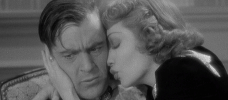
Bluebeard’s Eighth Wife
1938 -
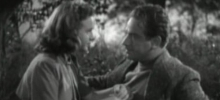
That Certain Age
1938 -

Midnight
1939 -
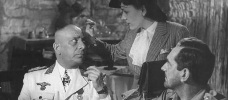
Five Graves to Cairo
1943 -
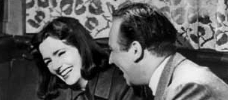
Ninotchka
1939 -
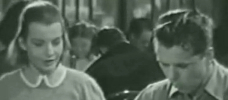
What a Life
1939 -
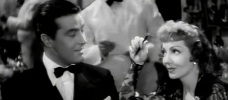
Arise My Love
1940 -
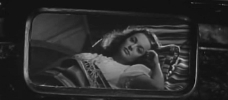
Hold Back the Dawn
1941 -
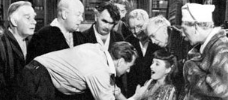
Ball of Fire
1941 -
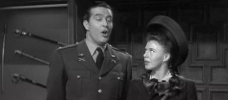
The Major and the Minor
1942 -
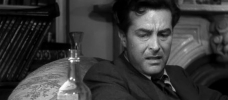
The Lost Weekend
1945 -
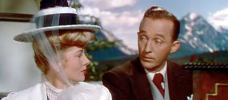
The Emperor Waltz
1948 -
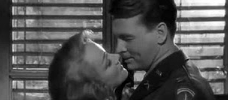
A Foreign Affair
1948 -
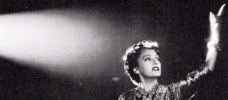
Sunset Boulevard
1950
We don’t do comments anymore, but you may contact us here or find us on Twitter or Facebook.



